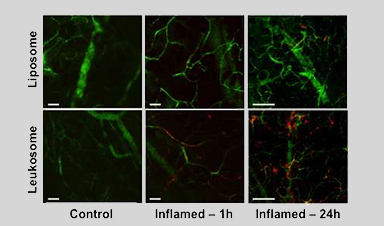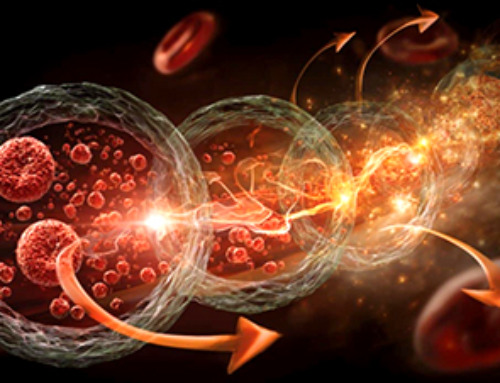From Physics.org:
Nanosized Trojan horses created from a patient’s own immune cells have successfully treated inflammation by overcoming the body’s complex defense mechanisms, perhaps leading to broader applications for treating diseases characterized by inflammation, such as cancer and cardiovascular diseases.
An international team, led by researchers at Houston Methodist Research Institute, described the creation of nanoparticles called leukosomes and evaluated their ability to treat localized inflammation in the May 23 issue of Nature Materials (early online).
Recent approaches to treating inflammatory diseases have been unsuccessful because an already overactive immune system treats simple nanoparticles as foreign invaders and clears them from the body, preventing them from reaching their target.
“A better approach for building effective drug delivery platforms is to find inspiration for their design in the composition of the immune cells of our body,” said Ennio Tasciotti, Ph.D., director of the Center for Biomimetic Medicine at Houston Methodist Research Institute and the paper’s senior author.
“Immune cells such as leukocytes freely circulate in blood vessels, recognize inflammation, and accumulate in inflamed tissues. They do so by using special receptors and ligands on their surface. We purified leukocytes from a patient, then integrated their special ligands and receptors into the leukosome surface. Using the body’s own materials, we built a drug delivery system camouflaged as our own body’s defense system—thus the Trojan horse.”






Leave A Comment